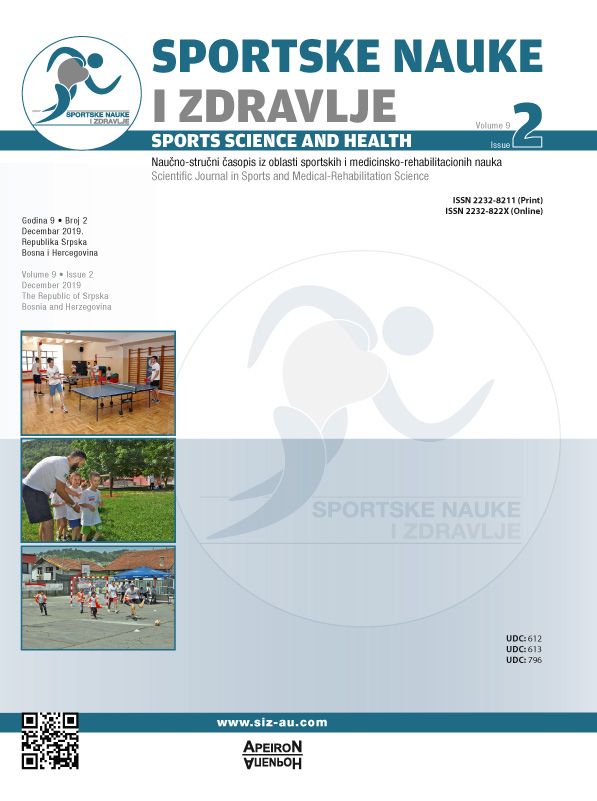Teachers Attitudes on Sports Talent in Primary School Pupils Transferring From Class to Subject Teaching / Stavovi nastavnika o sportskoj nadarenosti učenika osnovne škole koji prelaze iz razredne u predmetnu nastavu
DOI:
https://doi.org/10.7251/SSH1902114BAbstract
The study was conducted on a sample of 102 respondents (teachers / professors) employed in the elementary schools of the Zenica-Doboj Canton, Federation of Bosnia and Herzegovina. The main objective of the research is to determine the teachers / professors views on sport talent and any differences in attitudes on the students who pass from class to subject teaching, in activities that engage the student in terms of gender, working status, age and level of education of teachers. The total number of respondents was 102 teachers / professors permanently employed in the elementary school of the Zenica-Doboj Canton of the Federation of BiH.
A five-level Likert scale questionnaire was used as a measuring instrument in the research, in which each statement has 5 answers (completely disagree, disagree, don’t have opinion / neutral, agree, completely agree). The questionnaire contains 4 indicators for declaring the sporting talents of children-students, as well as questions related to gender, job / position, age and level of education.
LSD Post Hoc tests of success were applied for determination of the statistically significant differences between these group of subjects, the results of the test and analysis of the variation of the different groups.
The results obtained indicate that there are no statistically significant differences in the attitudes of teachers / professors or sports talents (above-average achievements) in activities that engage the student in terms of gender, working status, age and level of education.
